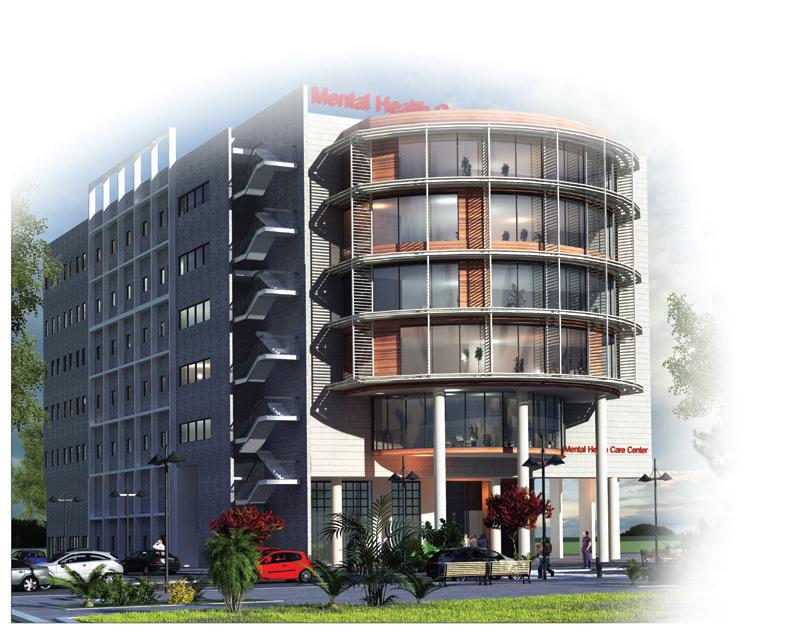
8 minute read
Seder Tu BiShevat— No Dried Fruit Please! Rabbi Moshe Bloom
INSTITUTE
BY RABBI MOSHE BLOOM www.toraland.org.il/en
Advertisement
Seder Tu BiShevat— No Dried Fruit Please!
Tu BiShevat, the New Year for Trees, is a day of halachic significance as far as orlah, neta revay, and terumot and ma’aserot are concerned (for instance, the transition from ma’aser sheni to ma’aser ani this year).
The 17 th century kabbalists of Safed
instituted a Tu BiShevat Seder, which involved eating fruit from the Land of Israel. The desire to eat fruit on Tu BiShevat that was not necessarily available in the market during the winter is why people purchased dried fruit. In addition, Jewish communities in the Diaspora who wanted to eat fruit from the Land of Israel generally needed to order dried fruit, since it took a long time for the fruit to arrive. For these two reasons, the custom developed to eat dried fruit on Tu BiShevat.
Today even Jews living abroad can purchase fresh fruit from Israel, which is preferable to dried fruit. The point
is to eat fruit from the Land of Israel; it’s unnecessary to buy dried fruit that wasn’t grown in Israel.
Even when buying fresh fruit in Israel, note that some of the fruit available in the supermarket is imported from different countries.
We recommend that for the Tu BiShevat Seder, one look specifically for fruit grown here in the Holy Land by Jewish farmers. Many mitzvot were performed with these fruit: orlah, neta revay, separating terumot and ma’aserot, and ensuring that they are not kilei ilan (grafted in a forbidden fashion), and if grapes, not kilei hakerem (grapevines planted near or above annual crops).
Using fruit grown in your garden, after performing the special land-dependent mitzvot with them, is the ultimate hidur.
Wishing you all a happy Tu BiShevat!
Check out our interactive Tu BiShevat Seder on our website: www.toraland. org.il/en/beit-midrash/articles/around-thejewish-year/tu-bishevat/digital-seder-tubishevat/
New projects 3,4, 5 rooms at great prices! Call today: Eta: 054-723-3863
Baka 100 sqm apartment in new project, 3 bedrooms, 2 full bathrooms, high ceilings, terrace (partial sukka) shabbat elevator and parking. 4,250,000 NIS. 3 amazing apartments - in an historic building: • Penthouse, 142.5 sqm, rooftop of 100 sqm. 7,500,000 NIS. • Penthouse 208 sqm, roof 102 sqm.10,500,000 NIS • Garden Apartment 300 sqm built space with 375 sqm garden. 12,500,000 NIS. Old Katamon 130 sqm beautiful duplex apartment with high ceilings, 3 bedrooms, 2.5 bathrooms, 20 sqm sukka terrace, elevator and parking. 5,500,000 NIS
115 sqm, new apartment, with 50 sqm registered garden. Ready to move in. 4,300,000 NIS Talbiya King David Crown apartment for sale. 24/7 doorman. 145 sqm on one oor , facing garden, 3 bedrooms, 2.5 bathrooms, terrace, parking, Shabbat elevator and storage. USD 1,800,000. German Colony 100 sqm apartment in a new project to be ready in 2 years. 50 sqm registered garden, parking. 4,500,000 NIS.
149 sqm luxury garden cottage, quiet green street, 190 sqm registered garden. 9,800,000 NIS. City Center King George, amazing beautifully renovated and ready to move in, 116 sqm 5 room apartment, 4 bedrooms & 2 full bathrooms, 2 elevators (one shabbat), small terrace. Modern kosher kitchen, large living room/dining room. 3,600,000 NIS. Abu Tor Rental 150 sqm, two oors, beautiful authentic Jerusalem home. 3 bedrooms, two full bathrooms, large living room/ dining room, eat-in kitchen, wrap around garden.
054-723-3863
Eta Morris Realty, Ltd. etamorrisrealestate@gmail.com Tel: 054-723-3863 · etamorrisrealty.co.il
WEIN
Rav, Beit Knesset Hanassi, Jerusalem
Miracles occur in all sizes and shapes. Some are major, completely aberrational and beyond natural or rational explanation. Other miracles that occur to us daily in our own lives and societies take the form of being natural events and part of the rhythm of society and life.
The major miracles command our attention, and as we see in this week’s reading of the Torah, even cause us to sing eternal songs that extend through generations of Jewish life till our very day. Certainly, the splitting of the waters of the sea before the Jewish people, escaping from the army of the Pharaoh of Egypt, and then for those very waters receding and covering the drowning Egyptian enemy, is a miracle of major importance, and thus remains indelible in the collective memory of the Jewish people. So, Moshe and his sister Miriam lead the Jewish people in song to commemorate this event and to impress upon them the awesome quality of this major miracle.
We are reminded daily in our prayers of this miracle, and the song of Moshe forms an important part of our daily morning prayer service. This type of miracle was repeated when the Jewish people crossed the river Jordan on their entry into the land of Israel after the death of Moshe and at the beginning of the reign of Joshua. This was less of a miracle, so to speak, than what took place with the Egyptian army. Nevertheless, it represented the confirmation of the divine will to protect the Jewish people and to enable them to enter, inhabit and settle the land of Israel that would be its eternal homeland over all of the millennia of civilization.
However, the commemoration and memory of the major miracle should also remind us of the so-called minor miracles that occur to us in our daily lives. We are accustomed to everything going right as far as our bodies, commercial enterprises

and social interactions are concerned. But it should be obvious to all that for things to go just right – simply what we call normal life – countless minor miracles must take place and occur.
We recite this in our daily prayers as well, and, in fact, we do so three times a day when we acknowledge and thank God for these so-called minor miracles that are with us constantly, evening, morning and afternoon. This ability to recognize and give thanks for the minor miracles that constitute our daily existence and life itself stems from the fact that we experienced in our collective memory the great miracle that made us a people, and saved us from the destruction that Pharaoh wished to visit upon us.
It is this memory of the great miracle that enables us to recognize these so-called minor miracles that we are living through, especially here in the land of Israel, with the return of Jewish sovereignty. Therefore, it is important to develop within us the ability to recognize and be grateful for the wonders and miracles that the Lord grants us each and every day of our individual and national lives.
Shabbat shalom!
Rabbi Berel Wein


PROFESSOR RAEL STROUS MEDICAL DIRECTOR OF THE MENTAL HEALTH CENTRE

The professional team in the Mordechai Fachler Family Therapy Unit at Mayanei Hayeshua’s Menavital Health Center tailors the treatment plan for each family’s needs on a personal and targeted level. Our goal is to create a respectful and empowering atmosphere for the families we treat here. There is tremendous investment both in terms of the therapies provided to the families and in terms of the variety of therapists who treat them. There is full collaboration between the parents and the professional team. Our working assumption is that despite impaired parental functioning, the parents have a deep knowledge of their own families. By utilizing our professional experience and the knowledge that we have accrued over the years, we try to help parents perform their roles in the best way possible.
We treat every family like an only child here, and we give them all the respect they deserve. We do not adopt a ‘This is the way we do things here’ approach. Our role as professionals is to learn the family, to map their areas of strength, to identify where they need further guidance and mediation, and to adapt the interventions to their needs.” To this end, says Professor Strous, the Family Therapy Unit employs a housemother, a social worker, psychologists and psychotherapists. Together, they provide different combinations of private therapies for parents and/or children; guidance for parents – either to both together or to each individually; dyadic therapy; family intervention; and more.
Another area where we work closely with the family is eating disorders. Wherever possible, our policy is to actively involve parents in the healing process at all levels: psychiatric, physical and spiritual. It is helpful that in the religious community, children tend to defer to the authority of their parents, who also provide the necessary support and encouragement. We are seeing phenomenal success specifically when we can work with the parents. Similarly, we experience excellent cooperation with schools. One of our 7th grade patients goes to the teacher’s room every day at the 12 o’clock recess and drinks her nutrient formula in front of the teacher. At Mayanei Hayeshua, we are not just reactive. We proactively organize outreach lectures and educational programs for worried parents in order to raise public awareness, to help families watch for tell-tale signs and to send out the message that anorexia is treatable. For more details, please contact Chaim Fachler at chaimf@mhmc.co.il or visit our website at https://www.fomhmc.org/








